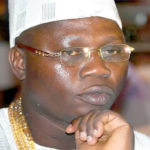From the lecture entitled ‘Socialism In The Service of Nigeria’ delivered by Chief Obafemi Awolowo, Chancellor of the University of Ife, at the University of Ife, Ile-Ife, on 9th April, 1970.
FIRST observation. There is a certain critical size and composition of the public sector, below which effective planning is impossible.
‘The “critical size” of the public sector necessary for effective planning is usually defined as a requirement of concentrating in the government’s hands so-called “commanding heights” of the economy, In a recent article Professor Y.B. Singh of India formulates this requirement as follows: “The history of planned economic development reveals that planning cannot be successful unless and until the ‘commanding heights’ (that is, basic industries, transport, communications, banking and finance) are in the public hands.’
‘Conclusion: Ia developing country wants to engage in effective economic planning, its public sector has to embrace certain strategic spheres of economic activity. Otherwise there is a serious danger that its planning remain mainly on paper.’
FG, govs to recruit N-Power cadets, corps members for community policing
The message in these quotations for Nigeria, planning big for reconstruction and development, is eloquent and indubitable. We cannot leave what Professor Singh graphically terms the ‘commanding heights’ in the exclusive control of alien private sector, and hope for satisfying success in our development plan, let alone for such success as will benefit all Nigerians without exception or discrimination.
It will be seen from all that we have said that socialism is a socio-economic philosophy which aims at promoting the prosperity and social well-being of all the citizens of Nigeria without discrimination. In this sense, it is a grave error for anyone in Nigeria, or in any other part of Africa for that matter, to regard socialism as an alien or evil doctrine; or for any professed Nigerian socialist to insist that the introduction of socialism necessarily imports hatred or the affluent, forcible expropriation of a certain class of people, or violence. It is also a gross misconception or ignorance or both, on the pan of any well-to-do or socially-well-placed Nigerian to dread socialism.
It is important for such people to realise, before it is too late, that danger to their person and property is more present and much graver in a society where extremes of wealth and property coexist, than in a society where such extremes do not exist, and where in any case, the children of those in the upper income brackets as well as of those in the lower income groups have equal access, without discrimination, to education, good health, and gainful employment.
It will be seen further that by definition and description, socialism is a socio-economic philosophy which is universal in its aims and applicability. It is as much Nigerian or African as it is Russian or Chinese in its aims and applicability. Those who, therefore, speak of African socialism as distinct from Russian or Chinese socialism, as well as those who regard the current advocacy for the introduction of socialism to Nigeria as premature, do so in utter ignorance and misunderstanding of what socialism connotes and stands for.
If socialism is as we have defined and described it, then it must be admitted that its role in the re-creation of Nigeria is indispensable.
Before the civil war, or indeed before the military take-over in 1966, Nigeria had many economic and social problems of stupendous and frightening proportions. Unemployment was already rife and becoming secular. Behind and beyond the false facades of a few urban areas, there was extreme poverty amongst more than 95 per cent of our people; preventable diseases had become endemic; and illiteracy and ignorance were the order of the day. There was acute shortage of the senior category of indigenous high-level manpower in every sphere of our governmental and scholastic activities; with the result that where national interests and pride dictated complete Nigerianisation, there was considerable lowering of efficiency. The gap in economic and social developments between the northern and southern parts of the country remained dangerously wide; so much so that it had begun to undermine and threaten national concord and sense of oneness.
Apart from helping in a small way to reduce the large population in our unemployment market, the civil war has only succeeded in complicating and aggravating these pre-war problems. Today, most of our hospitals, as well as many homes are filled with the wounded and the maimed of the war. Several tens of thousands of soldiers are waiting to be absorbed into gainful civil employment; and, in the meantime, that is whilst they wait, the nation is properly called upon to maintain them in reasonable comfort with funds which could have been used for economically and socially productive purposes. Orphans and widows abound; and there is silent grief in many hearts for the loss of those able-bodied bread-winners who had been killed in the war. Public over-head capital, like roads, bridges, railways, schools, etc., which was acquired at enormous costs and which had been damaged during the war, is waiting to be restored and reconstructed at higher costs than before. Those Nigerians who lost their properties during the war are waiting forlornly for the wherewithal to replace them. As if these complications and aggravations were not enough, the demons of unemployment, poverty, ignorance, and disease continue, as ever before, to ravage our land.






